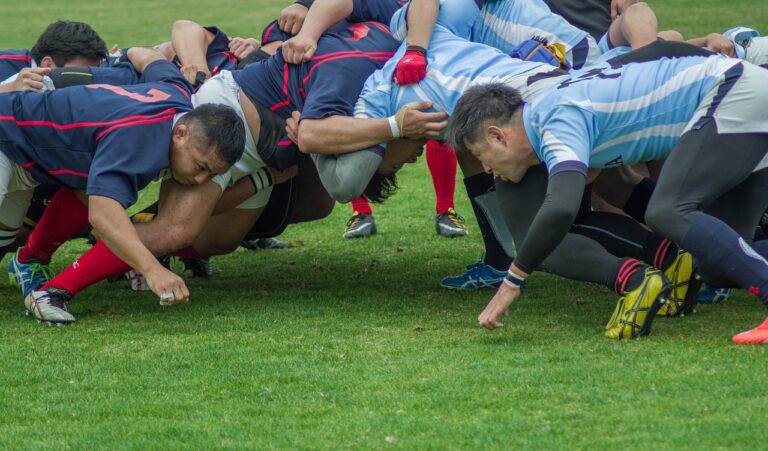How To Answer ‘Are You A Team Player’ + 10 Powerful Examples
About the author: Ilam’s career in Technology and Financial Services spans more than two decades, characterized by leadership roles and vast international experience. He has managed large global teams, worked across five countries, and engaged with colleagues from over 100 nationalities. Through this blog covering executive interview questions, Ilam shares his diverse experiences and insights, aiming to contribute to and enrich the community.

Teamwork is a critical part of any workplace, and being a great team player can make all the difference in achieving success. It involves working collaboratively with others towards a common goal, respecting their opinions and ideas, and contributing your own skills and expertise. As a result, many hiring managers place a significant emphasis on teamwork skills when interviewing job seekers.
In this blog post, we will discuss why being a team player is crucial in the workplace, introduce the concept of being a team player and how to answer ‘Are You A Team Player’ or variations of it in job interviews, and highlight the keywords related to teamwork and team environment that will be covered in the post.
Whether you’re preparing for a job interview or looking to improve your teamwork skills, this post will offer practical advice to help you succeed in a team setting.
Here are some helpful job interview related blogs
- Tackling the final interview round
- How to answer ‘tell me about yourself’
- What are your career aspirations
- Why do you want this job
- Why should we hire you
- Why are you leaving your job
- What are you passionate about
- Strengths and Weaknesses In Interview
- Interview questions for managers
- What is your management style
- Interview questions for freshers
- Tips to succeed in a job interview
- Types of interview questions
- Interview questions to ask candidates
- Behavioural interview questions
- Walk me through your resume
- What makes you unique
- What are your goals
- How do you handle stress and pressure
- Are you a team player
- How did you hear about this position
- Where do you see yourself in five years
- How do you handle stakeholders
Why Hiring Managers Ask About Teamwork
Teamwork is an essential part of any organization, and employers are always looking for candidates who can work effectively with others. During job interviews, hiring managers ask about teamwork because they want to assess a candidate’s ability to work collaboratively in a team environment & contribute to company’s goals. Employers hire people not just for their individual skills and experience, but also for their ability to contribute positively to a team.
Additionally, being a great team player is crucial for success in any position, from entry-level positions to leadership roles. In today’s fast-paced and complex work environments, it’s often impossible to achieve success working alone. Collaboration and team effort help ensure that tasks are completed efficiently and effectively, and that the organization can meet its goals.
For example, in project-based work or those that require multiple skill sets, teamwork is essential. A team of individuals from different departments working together can provide a well-rounded solution to a problem.
Another example is during crisis management situations where a quick response with coordinated efforts can save lives. In such scenarios, working together cohesively as a team can make all the difference. In the age of AI, being skilled in bring out team efforts has only gained much more relevance.
Being a great team player also needs excellent communication skills. A good team player in a leadership role also tends to create more team players. And eventually, the brand awareness that these team players build tends to outshine all the campaigns that company’s social media profiles can only dream about.
How to Answer “Are You a Team Player?” in an Interview

One typically tends to prepare to answer questions that are most commonly asked, and this sits low on that list. But it is something that can make or break the eventual decision.
Two effective methods for structuring your answer are the STAR (Situation, Task, Action, Result) method and the CAR (Challenge, Action, Result) method. These frameworks can help you provide a clear and concise response that highlights your teamwork skills and accomplishments. Let’s explore these methods and an example of how to use them to answer the interview question.
1. STAR Method
The STAR method is a structured approach for answering behavioral interview questions. It involves breaking down your response into four components:
– Situation: Describe the context or situation where your teamwork skills were tested or demonstrated.
– Task: Explain the specific task or objective you were assigned within the team.
– Action: Detail the actions you took to contribute to the team’s success or address any challenges.
– Result: Summarize the positive outcome or impact of your teamwork efforts.
Example using the STAR method
Interviewer: “Are you a team player?”
Candidate: “Yes, I am. Let me give you an example from a similar role. In my previous role as a project manager, we were assigned a complex project with a tight deadline. (Situation) The project involved cross-functional teams working together to develop a new product. (Task) As the team lead, my responsibility was to ensure effective collaboration and coordination among team members from different departments. (Action) To achieve this, I organized regular team meetings, encouraged open communication with all our other team members, and established clear roles and responsibilities to identify the job description for each member concretely.
I also implemented a project management tool to track progress and facilitate seamless collaboration. (Result) As a result of these efforts, we successfully delivered the project on time, exceeding client expectations and receiving positive feedback. Additionally, team morale improved, and we developed stronger working relationships that continued to benefit future projects.”
2. CAR Method
The CAR method is another effective approach for answering interview questions. It focuses on presenting a concise response by following three key components:
– Challenge: Identify a specific challenge or situation that required teamwork.
– Action: Describe the actions you took to address the challenge and contribute to the team.
– Result: Highlight the positive outcome or achievement resulting from your teamwork.
Example using the CAR method
Interviewer: “Are you a team player?”
Candidate: “Absolutely! Let me illustrate using the CAR method. During my time at XYZ Company, we faced a significant challenge when our department had to implement a new software system. (Challenge) The success of the implementation relied heavily on effective collaboration among different teams, including IT, operations, and customer service. (Action) As a team member, I proactively engaged with colleagues from various departments to establish clear lines of communication and foster a cooperative environment.
I also volunteered to conduct training sessions to ensure everyone understood the new system. (Result) Through our collective efforts, we successfully implemented the software system on schedule, minimizing disruptions and improving overall operational efficiency. This experience reinforced the value of teamwork and my ability to contribute effectively in a collaborative setting.”
By using either the STAR or CAR method, you can structure your response to demonstrate your teamwork skills, highlight your accomplishments, and leave a positive impression on the interviewer. Remember to provide specific examples and quantify your results whenever possible to make your answer more impactful.
Here are some helpful job interview related blogs
- Tackling the final interview round
- How to answer ‘tell me about yourself’
- What are your career aspirations?
- Why do you want this job?
- Why should we hire you?
- Strengths and Weaknesses In Interview
- Interview questions for managers
- Interview questions for freshers
- Tips to succeed in a job interview
- Do you need a Career coach / Interview coach?
“Are You a Team Player?” – 10 Powerful Examples

Demonstrating your ability to work effectively as part of a team is an important aspect of many job roles. In this section, we’ll provide ten powerful examples of how different personas, such as a marketing manager, a fresher, a technical architect, and a project manager, can answer the question “Are you a team player?” in a compelling way.
Marketing Manager
“As a Marketing Manager, I have led several cross-functional teams to deliver successful product launches. For example, when we launched our latest product, I worked closely with the design, product, and engineering teams to ensure that we delivered a seamless and impactful launch. The result was a successful launch that exceeded our sales targets.”
Fresher
“While I may not have much experience, I have always been a team player in my academic pursuits. For instance, I worked with a group of fellow students on a group project where we had to develop a marketing plan for a new product. I took on the role of the team leader and ensured that each team member was assigned tasks according to their strengths. Our presentation was well-received, and we received an A grade for our efforts.”
Technical Architect
“As a Technical Architect, I understand the importance of collaboration in delivering successful projects. For example, while working on a complex software project, I collaborated with developers, testers, and business analysts to ensure that the solution met all requirements. By keeping the lines of communication open and addressing issues promptly, we were able to deliver the project on time and within budget.”
Project Manager
“As a Project Manager, I have extensive experience leading teams to deliver complex projects on time and within budget. For instance, in my previous role, I managed a team of developers, designers, and testers to deliver a new web application. By leveraging each team member’s strengths and communicating effectively with stakeholders, we were able to deliver the project ahead of schedule and under budget.”
Sales Executive
“As a Sales Executive, I understand that teamwork is key to achieving our goals. For example, I collaborate with other sales executives and account managers to ensure that we meet our quarterly targets. By sharing best practices and working together to identify new opportunities, we have consistently exceeded our targets.”
Human Resources Manager
“As a Human Resources Manager, I have worked closely with teams across the organization to drive employee engagement and morale. For instance, I led a team of volunteers to organize our company’s annual charity event. By fostering a supportive and collaborative environment, we were able to raise a record amount of funds for our chosen charity.”
Business Analyst
“As a Business Analyst, I understand the importance of collaboration in driving successful outcomes. For example, I collaborated with stakeholders from various departments to develop a new pricing strategy for our products. By keeping an open mind, listening to feedback, and working together to find solutions, we were able to develop a strategy that was well-received by customers and increased revenue for the company.”
Customer Service Representative
“As a Customer Service Representative, I work with my colleagues to ensure that our customers receive the best possible service. For example, I collaborated with my team to develop a new process for handling customer complaints. By empowering frontline staff to take ownership of customer complaints and providing them with the necessary training and support, we were able to reduce complaint resolution times and improve customer satisfaction.”
Graphic Designer
“As a Graphic Designer, I understand that creativity thrives in a collaborative environment. For example, I collaborated with other designers and artists to develop a new brand identity for a client. By bouncing ideas off each other, giving and receiving constructive feedback, we were able to develop a unique and visually stunning identity that made the client stand out in their market.”
Software Engineer
“As a Software Engineer, I work closely with other engineers, testers, and project managers to deliver high-quality software solutions. For example, I collaborated with my team to develop a new feature for our product. By communicating clearly, working through technical challenges together, and testing rigorously, we were able to deliver a feature that was well-received by customers and increased revenue for the company.”
5 Key Takeaways

- Teamwork skills are highly valued by hiring managers as they are essential for success in any workplace. Demonstrating your ability to work effectively with others is crucial during job interviews.
- The STAR (Situation, Task, Action, Result) and CAR (Challenge, Action, Result) methods are effective frameworks for structuring your responses when answering questions about teamwork in interviews.
- The STAR method breaks down your response into four components: Situation, Task, Action, and Result. This structure allows you to provide a clear and concise answer while highlighting your teamwork skills and accomplishments.
- The CAR method focuses on presenting a concise response by addressing three components: Challenge, Action, and Result. This approach allows you to provide a brief yet impactful answer that showcases your ability to work well in a team.
- Providing specific examples and quantifying your results whenever possible strengthens your answer and leaves a positive impression on the interviewer. Highlight your contributions, such as successful project completion, improved team morale, or increased efficiency, to showcase your teamwork skills effectively.
Here are some helpful career/leadership related blogs
- Careers– Agile Coach, RTE, Product Owner, Scrum Master, QA Manager
- Career development plan
- Career growth
- Project Management
- Managing Managers
- IT Career switch
- Software Engineering career path
- Agility, Agile Testing
- Remote leadership / Leadership traits / Agile leadership
Other Productivity / Tools posts that may interest you
- Productivity
- Book summary apps – Headway App vs Blinkist vs getAbstract
- AI Writers: / Blogging – Jasper, Writesonic, Article Forge , Copy AI, Anyword, Writecream, Copymatic, Quillbot, Peppertype, Jasper AI (pricing) &
- Work From Home tools: Jabra
Author also writes at his Medium site.





